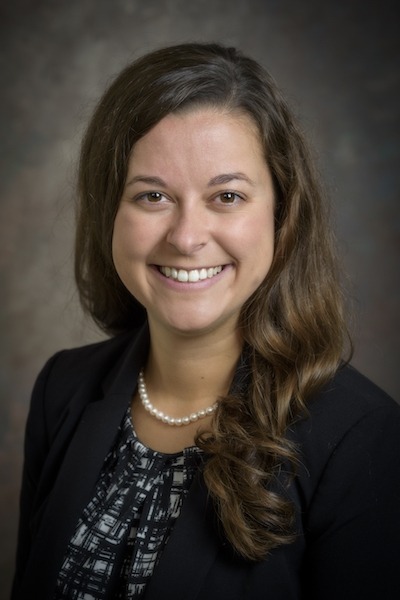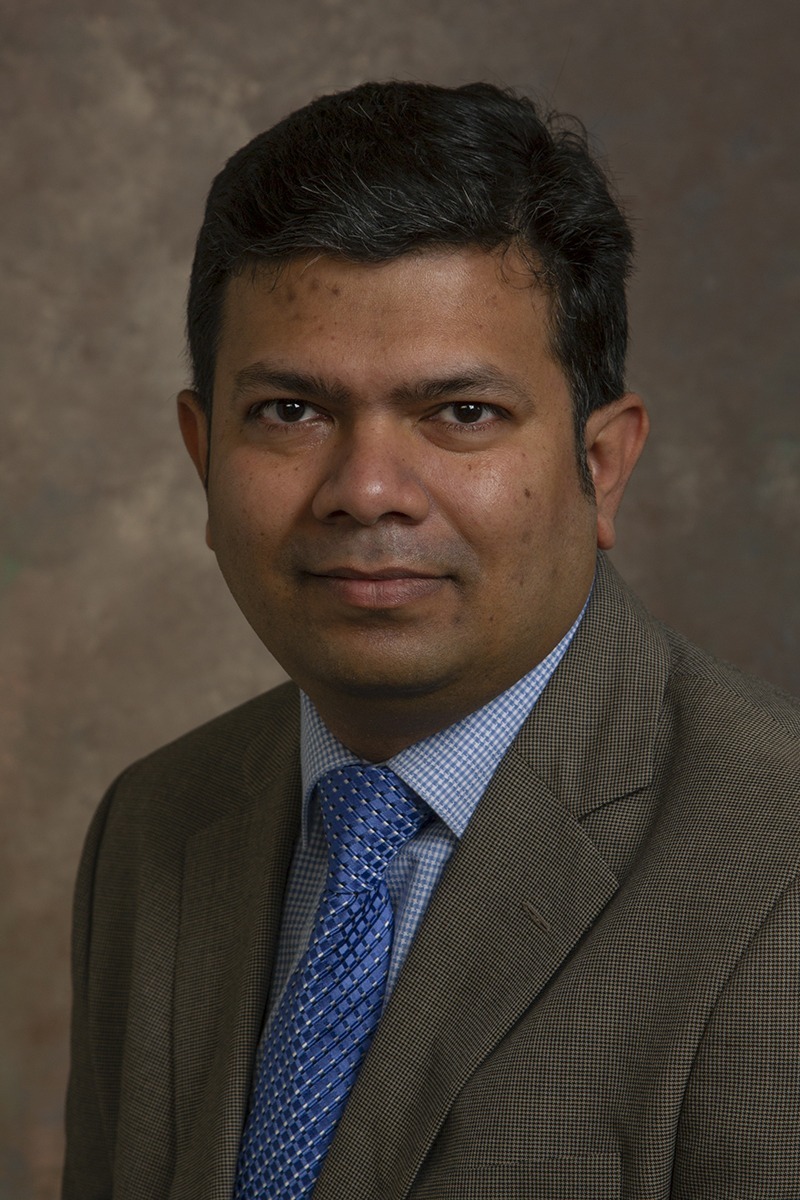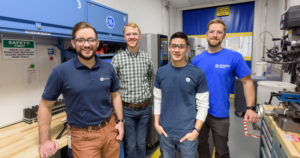RISE Annual Newsletter 2023
Meet some of our College of Engineering faculty

Dr. Catherine Fromen
Associate Professor, Chemical & Biomolecular Engineering
Dr. Catherine Fromen, a remarkable faculty member in the Chemical and Biomolecular Engineering Department at the University of Delaware, recently achieved a significant milestone in her career: She was promoted from assistant professor to associate professor with tenure.
Her journey toward this esteemed position began during her junior year at the University of Rochester, where she pursued her studies in Chemical Engineering. Initially, Dr. Fromen had planned to graduate and work in the industry, as many engineering students do. However, thanks to the influence of her peers and mentors who recognized her research potential and her passion, she was inspired to pursue a Ph.D. in Chemical Engineering at North Carolina State University. Following the completion of her doctoral studies, she embarked on a three-year tenure as a University of Michigan President’s Postdoctoral Fellow. In 2017, she joined the University of Delaware community.
Throughout her time at the University of Delaware, Dr. Fromen has dedicated her research efforts to tackling the challenges associated with respiratory diseases and the existing limitations in applying therapeutics consistently and efficiently. She acknowledges that respiratory diseases involve physiological and pathological changes occurring across various length scales, with molecular-level dysfunctions impacting cellular interactions, microenvironment dynamics, and lung organ function. To address these complexities, Dr. Fromen and her team employ engineering fundamentals and innovative approaches, coupled with the latest insights from immunology, to better understand the manifestations of these changes at each scale. Their specific focus lies in comprehending the impact of these alterations on the effectiveness of inhaled therapeutics and developing translational aerosol designs. This includes leveraging 3D printing to advance in vitro tools for drug delivery testing, using engineered particles to probe lung biology and immune function, and engineering novel therapeutics for controlled immune stimulation in the lung. Dr. Fromen is deeply passionate about her lab’s work due to its immense potential to positively impact the community. She constantly strives for improvement and actively seeks to involve new students in her lab.
Beyond her work in the lab, Dr. Fromen is committed to creating a better environment for her students. She acknowledges that engineering students often face immense pressure to be perfect, which can have negative effects on their mental health and overall well-being. To help address this issue, she aims to explore curriculum adjustments that encourage a mindset of learning rather than perfection. Dr. Fromen believes that students should be capable of answering significant questions related to the field and be confident in their abilities to do so.
When asked about an area she wishes students would learn more about in their curriculum, Dr. Fromen emphasized the importance of science communication. While mastery of the sciences and mathematics is crucial in engineering, the ability to effectively communicate the how and why of these concepts to individuals without an engineering background is equally essential. Although students receive some exposure to science communication through presentations, she believes that a dedicated class should be created to intentionally teach students this vital skill.
With her recent promotion, Dr. Fromen is enthusiastic about the opportunities it presents for making strides both within and outside the lab. Her commitment to research excellence, student well-being, and effective science communication is a testament to her dedication and passion for her field.

Dr. Vishal Saxena
Associate Professor, Electrical & Computer Engineering
Dr. Saxena grew up with a strong interest in physics and building things during his time in high school. In his home country of India, there was a science center that would host contests where he would admire the different mechanisms on display that would later bridge his interest in advanced physics. He would go on to attend the Indian School of Technology to pursue his engineering passion. After completing his undergrad, he fwas unsure about what he wanted to do as there were so many options available in the Electrical and Computer Engineering (ECE) world. He went on to work at a startup where he was able to explore his options more; he eventually got into designing hardware and later found an interest in microchips. A collaboration with Dr. Jake Baker from Boise State University landed him an internship., which then led him to earning his M.S. and Ph.D. in Electrical and Computer Engineering from Boise State University . He then completed independent research before coming to Delaware in 2019.
Dr. Saxena’s research is fundamentally related to his ELEG309 Course (Electronic Circuit Analysis I) using ideas that are 15 years ahead of their time. He is currently working on photonic microchips and chips for artificial intelligence (AI), as there is a need for a reduction of power consumption and energy requirements. His passion is derived from the fact that he combines physics and math, builds things, and tests them, as he believes that testing is an important skill.
As a result of the pandemic, things have slowed down in his research efforts dramatically. Now, his goal is to get things rolling and ramped back up again. Dr. Saxena wants to attract students to take ELEG309 and the following course and eventually enter into research with the hope that his program will expand and have students from all levels. He places emphasis on wanting to reach and interact with more students in the hopes of them growing and trying new things.
Diversity and inclusion are a top focus for UD’s ECE department. Last year, the department hosted a summer camp where high school students from various backgrounds went through basic ECE concepts to garner their interest and excitement about the subject. Dr. Saxena hopes to increase the efforts for recruitment of students from diverse populations.
Dr. Saxena believes that the curriculum underemphasized Math. Not just the math that is taught in a course, but the math that can be enjoyed and applied. For example, the math behind AI uses first-level linear algebra. You can then figure out how linear algebra ties into the overall picture. The Netflix recommendation system, for example, is just a linear algebra problem.
Dr. Saxena also emphasizes figuring things out on your own, writing your own code, and exploring yourself. Don’t settle on just course material, but have the and passion to try something new. Be driven to build and be a leader. Have a desire for innovation and be open to working with teams. All of these aspects come together in the engineering process.
Dr. Saxena’s biggest challenge during his career was access to information. His solution for it? Mentorship. He believes that the earlier you have the courage to seek out mentorship, the more time that can be saved in your career.
–Edrian Vargas


